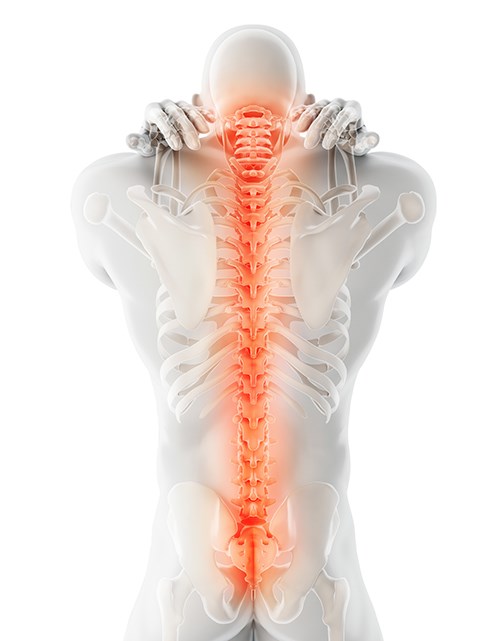
Rebecca Margel - Special to the 51����
You know that back pain that's been bugging you off and on for years?
You've been to the doctor or the physio, they've told you it's nothing serious, but you're sure you need an MRI and maybe surgery because it just won't go away.
Maybe you've tried passive treatments and analgesics, you've rested it and avoided lifting things, yet it keeps coming back.
Maybe it's just a lowkey ache, maybe it's nervy pain that radiates down your legs.
If this sounds frustratingly familiar, it might be useful to know what the science is behind the most effective way to treat persistent low back pain.
If your health professional has told you that you don't need an MRI, surgery won't "fix" you, and the best way to manage your back is to pay a visit to your physiotherapist and your psychologist, this is why:
An MRI is likely to do nothing but freak you out.
In fact, patients who have hurt their backs and have been sent for an MRI are actually less likely to recover than those who are not sent for a scan.
More than 90 per cent of older adults who have never had back pain have bulging disc findings on MRI.
That means that for older adults, bulging discs are normal and are not accurate predictors for back pain.
To this point, University of Waterloo professor Dr. Stuart McGill has said that “a degenerative disc disease diagnosis is the equivalent of telling your wrinkled mother-in-law that she has degenerative face disease”.
Basically, if you have an MRI and you're young, it's likely nothing will show up on the scan - yet you still have pain.
If you're old, things will definitely show up on the scan, but these things are normal and not the cause of your pain.
Because your persistent pain isn't being created by the structures in your back, it's being created by your central nervous system.
We know that a person’s beliefs play a significant role in cause, outcomes and management of back pain.
Numerous studies have been published showing that people who believe their back pain will get better are more likely to actually get better (show greater functional improvement), and that people who are afraid to move when they have acute back pain have poorer outcomes.
People who believe their backs are vulnerable to injury typically avoid activities that use their backs and move with too much caution, limiting their recovery potential.
Psychosocial factors predict outcomes for low back pain patients equally to or more than physical factors.
A combination of cognitive behavioural therapy (i.e. seeing a psychologist for pain management) and exercise (i.e. seeing a physiotherapist) frequently has better outcomes than surgery for persistent low back pain patients.
Moving your back normally, strengthening it gradually, and managing psychosocial factors with the help of your community (outdoor activities, running, gym, yoga, sports teams, friends, family, dance class, coworkers, art, other hobbies/interests, community resources) and healthcare team (psychologist, physiotherapist, dietitian, GP) will help you to prevent and recover from persistent low back pain.
Pain is a subjective experience.
“Psychosocial factors” means that things like poorly managed stress, and emotional pain, among others, can lead to physical pain.
Pain is manifested by your central nervous system and it feels like whatever it feels like - it’s not “in your head” - if you feel it, it’s real, but it often isn’t caused strictly by mechanical injury.
Of course there are exceptions to all of this, so your best bet is to see your physiotherapist for an assessment and guidance.
This article is not meant to substitute for medical advice, diagnosis or treatment.
Rebecca Margel is a physiotherapist at Jasper Physiotherapy and Health Centre. The clinic uses physiotherapy, massage therapy, and exercise to improve patient recovery times and generate healthier lifestyles. Visit for more information.



